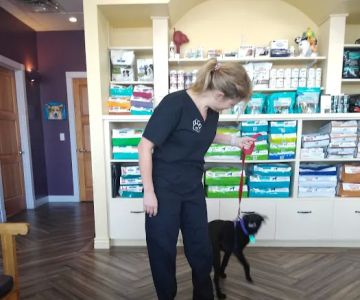Understanding the Role of Veterinary Cardiologists: Do They Work with All Animals?
When I first heard about veterinary cardiologists, I thought their expertise might be limited to specific types of animals, such as cats and dogs. After all, heart problems in animals seemed like an issue most relevant to pets. But when my own pet, a rescue dog, was diagnosed with a heart condition, I realized just how broad the scope of a veterinary cardiologist’s work could be. This experience led me to explore more about the role of these specialists and the kinds of animals they care for.
So, do veterinary cardiologists work with all animals? The short answer is yes, but with some specific nuances based on the species involved. Veterinary cardiologists are experts in diagnosing and treating heart conditions in animals, and while most people associate them with dogs and cats, they actually provide care to a wide variety of animals. In this article, I’ll walk you through what veterinary cardiologists do, the animals they work with, and how they help animals with heart problems. If you’ve ever wondered whether your pet could benefit from seeing a veterinary cardiologist, keep reading to learn more.
1. What Does a Veterinary Cardiologist Do?
Veterinary cardiologists are specialized veterinarians who focus on diagnosing and treating heart conditions in animals. They use many of the same techniques as human cardiologists, including imaging technologies like echocardiograms, ultrasounds, and X-rays, to assess the health of an animal’s heart. In addition to heart disease diagnosis, they also manage ongoing treatment and monitor conditions to ensure that an animal’s heart health is well-maintained.
When I took my dog to a veterinary cardiologist, they performed a thorough examination, including a physical exam, heart auscultation (listening to the heart), and an echocardiogram. The diagnostic process helped identify the exact issue with my dog’s heart and provided a clear treatment plan. This experience gave me a deep appreciation for the complexity of animal heart health, as well as the role of the veterinary cardiologist in ensuring that animals receive the best possible care for heart conditions.
2. Which Animals Do Veterinary Cardiologists Treat?
While veterinary cardiologists are most commonly associated with common household pets like dogs and cats, the scope of their work is much broader. These specialists often work with various animals, including small mammals, birds, reptiles, and even some exotic species. The key factors in determining whether a veterinary cardiologist can work with a specific animal include the type of heart condition, the animal’s overall health, and the resources available for treatment.
2.1. Dogs and Cats
Dogs and cats are by far the most common animals that veterinary cardiologists treat. These animals are more likely to develop heart conditions such as heart murmurs, arrhythmias, congestive heart failure, and valve diseases. As a pet owner, I’ve learned that common breeds such as Dachshunds, Dobermans, and Cavalier King Charles Spaniels are more predisposed to certain heart conditions, making it even more important to have regular heart checkups for these pets.
Veterinary cardiologists play a crucial role in helping to extend the lives of dogs and cats by diagnosing heart disease early and managing it with medication, lifestyle changes, and sometimes surgery. In my own experience, seeing a veterinary cardiologist was key in preventing my dog’s condition from worsening and allowed us to implement a treatment plan that improved his quality of life.
2.2. Small Mammals
Small mammals such as rabbits, guinea pigs, and ferrets can also suffer from heart conditions. While less common than in dogs and cats, heart disease in these animals can be just as serious. Veterinary cardiologists can treat conditions like congestive heart failure, heartworms, and high blood pressure in small mammals. If you own a rabbit or guinea pig, it’s essential to know that heart disease can affect them, and regular vet checkups can help detect any potential issues early.
For example, one of my friends had a rabbit that developed heart issues related to obesity. Their veterinary cardiologist helped to adjust the rabbit’s diet and introduced medications to improve heart function, preventing further complications. It was a reminder that all animals, no matter their size, deserve attention to their heart health.
2.3. Birds and Exotic Animals
Birds and exotic animals, such as reptiles, amphibians, and even some wild animals in rehabilitation centers, can also develop heart conditions. However, diagnosing heart disease in these animals can be more challenging due to their anatomy and the difficulty of performing certain diagnostic tests. That said, veterinary cardiologists have specialized knowledge and tools to work with these species.
For instance, veterinary cardiologists can diagnose avian species, like parrots, with heart disease through X-rays and echocardiograms. Exotic pet owners may not always think of heart disease in their animals, but it’s important to know that conditions like hypertension and cardiomyopathy can occur, particularly in aging or stressed animals. I once read about a parrot that was diagnosed with heart disease after its owner noticed changes in its behavior. The veterinary cardiologist was able to provide an effective treatment plan, which helped improve the bird's health.
2.4. Horses and Farm Animals
Although horses and farm animals like cows, sheep, and goats are less commonly seen by veterinary cardiologists, they too can experience heart issues. Large animals like horses can suffer from arrhythmias, heart murmurs, and other conditions that affect performance, especially in racehorses or working animals. Veterinary cardiologists working with large animals may focus on the animal’s cardiovascular health as part of its overall fitness and endurance.
In rural areas or agricultural settings, I’ve seen how essential a veterinary cardiologist can be for diagnosing and managing heart conditions in working animals. Regular checkups are just as important for large animals as they are for household pets.
3. When Should You See a Veterinary Cardiologist for Your Animal?
So, when should you consider visiting a veterinary cardiologist? While general veterinarians can handle most health concerns, a veterinary cardiologist is essential when your pet shows signs of a heart problem. Some of the common signs of heart issues in animals include:
- Coughing or wheezing – Particularly in dogs, a persistent cough could signal heart disease.
- Fatigue or lethargy – Animals suffering from heart problems may become more tired than usual.
- Difficulty breathing – Labored breathing or shortness of breath is a red flag.
- Fainting or collapsing – This could be a serious indicator of a heart condition.
- Changes in appetite or weight – Unexplained weight loss or loss of appetite may be linked to heart disease.
If you notice any of these symptoms in your animal, it’s essential to consult with a veterinary cardiologist who can provide a thorough examination and diagnostic testing. Early detection can lead to better outcomes, allowing for a comprehensive treatment plan that addresses the root cause of the heart problem.
4. How to Choose a Veterinary Cardiologist for Your Animal
Choosing the right veterinary cardiologist for your pet is an important step in ensuring the best care. Here are some tips based on my experience:
- Experience and Specialization – Look for a board-certified veterinary cardiologist with extensive experience treating your specific type of animal.
- Diagnostic Tools – A good veterinary cardiologist should have access to advanced diagnostic tools, such as echocardiograms, electrocardiograms, and X-rays.
- Reputation – Ask for recommendations from trusted sources, such as your regular veterinarian or other pet owners.
- Comfort and Communication – Make sure you and your pet feel comfortable with the cardiologist. Communication is key to understanding treatment options and progress.
5. Conclusion
Veterinary cardiologists play a crucial role in maintaining the heart health of animals, whether they’re household pets, small mammals, or even exotic creatures. They provide specialized care that can make a significant difference in an animal’s life, from early diagnosis to effective management of heart conditions. If your animal is showing signs of heart trouble or if you're simply looking to be proactive about their health, seeing a veterinary cardiologist is an excellent next step.
To learn more about veterinary cardiology or to find a qualified professional near you, I recommend visiting HeartCare Hub. They provide comprehensive resources and expert recommendations to help you ensure your animal gets the care they need.











